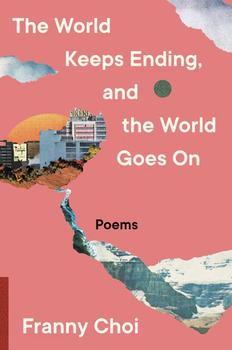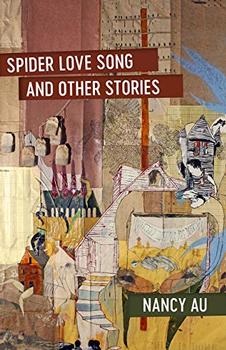Summary | Excerpt | Reviews | Beyond the book | Read-Alikes | Genres & Themes | Author Bio

The fine thing about short stories in general is their way of following characters through significant moments or events of change. It's a little like shadowing someone's life for a while and witnessing through it something striking about life itself. But what Yoon Choi offers in her stellar debut is an in-depth, all-in, no-boundaries sort of visit into her characters' whole, rich existences.
Skinship is a collection of eight short stories that showcases the multiplicity and complexity of the Korean American experience. The stories present a sweeping view of Yoon's characters, so though we're with them for only a few pages, the depth of the flashbacks and backstories are so illuminating, it feels as if she's giving us unlimited access to them.
Choi's stories are built up on small moments, constructed upon a frame of tiny potent instances that she tends to with careful, laborious detail. In "A Map of the Simplified World," a young child's crucial moment of change occurs when she slightly betrays her friend. That moment doesn't come out of context; it is borne of the progression of many other small moments of development, of a person's subtle becoming.
Choi slips into the tone, voice and perspective of each of the varied protagonists in her stories. In "The Art of Losing," the most poignant of the lot, the point of view flits between husband Mo-sae, who has Alzheimer's, and wife Young-ja, brilliantly conveying the disorientation of the one and the harried resilience of the other. Meanwhile, the story presents a glimpse of the characters themselves and what their marriage has been like. During Christmas, when Mo-sae peels himself out of the choir and starts singing in the middle of the stage with the tenor soloist, Young-ja feels that in this spectacle "her private miseries had become manifest." The present instance of embarrassment has roots in the past.
In many of the stories there is a sense of melancholic reverence for the past. Not for the things that are long gone, but for the fact that they happened, that they played their part and left an impression forever. "First Language" is the story of an arranged marriage into which wife Sae-ri comes loaded with half-disclosed facts from her previous life in Korea. Knowing a little English, she begins to use language as a way to lead a secret life. At one point she says, "It is very easy to lie in the language that is not your first language." But language also alienates her from her Korean kin, who have only known her (and she them) in Korean.
Then there is the titular story, "Skinship," that tackles the difficult subject of troubled homes and describes in minute detail how a person from such a home develops. It looks in from the perspective of So-hyun, a 13-year-old Korean girl who goes to America with her mother and brother to escape her abusive father. The ending that Choi gives us feels unreal and almost implausible, something even our narrator admits. And yet it is powerful. In less capable hands this story would fall apart, but in Choi's, it feels deftly held together.
There are stories that are weaker comparatively, such as the last two, which leave the reader more confused than struck. But even with these, Choi feels in control; they are still tight and well crafted, giving a sense that the author has firmly kept the reins to herself, and desires the reader to trust her with them. When you do, you're promised a dip into a world of complex characters and emotions, interesting intersections of differing experiences, and narratives with something of the "Yes, but" quality that the writer J. G. Ballard suggests every good short story must have.
![]() This review was originally published in The BookBrowse Review in October 2021, and has been updated for the
May 2022 edition.
Click here to go to this issue.
This review was originally published in The BookBrowse Review in October 2021, and has been updated for the
May 2022 edition.
Click here to go to this issue.

If you liked Skinship, try these:

The World Keeps Ending, and the World Goes On
by Franny Choi
Published 2023
From acclaimed poet Franny Choi comes a poetry collection for the ends of worlds—past, present, and future. Choi's third book features poems about historical and impending apocalypses, alongside musings on our responsibilities to each other and visions for our collective survival.

Spider Love Song and Other Stories
by Nancy Au
Published 2019
Nancy Au's debut collection is rich with scents, sounds, imaginative leaps, and unexpected angles of vision.
Great literature cannot grow from a neglected or impoverished soil...
Click Here to find out who said this, as well as discovering other famous literary quotes!
Your guide toexceptional books
BookBrowse seeks out and recommends the best in contemporary fiction and nonfiction—books that not only engage and entertain but also deepen our understanding of ourselves and the world around us.